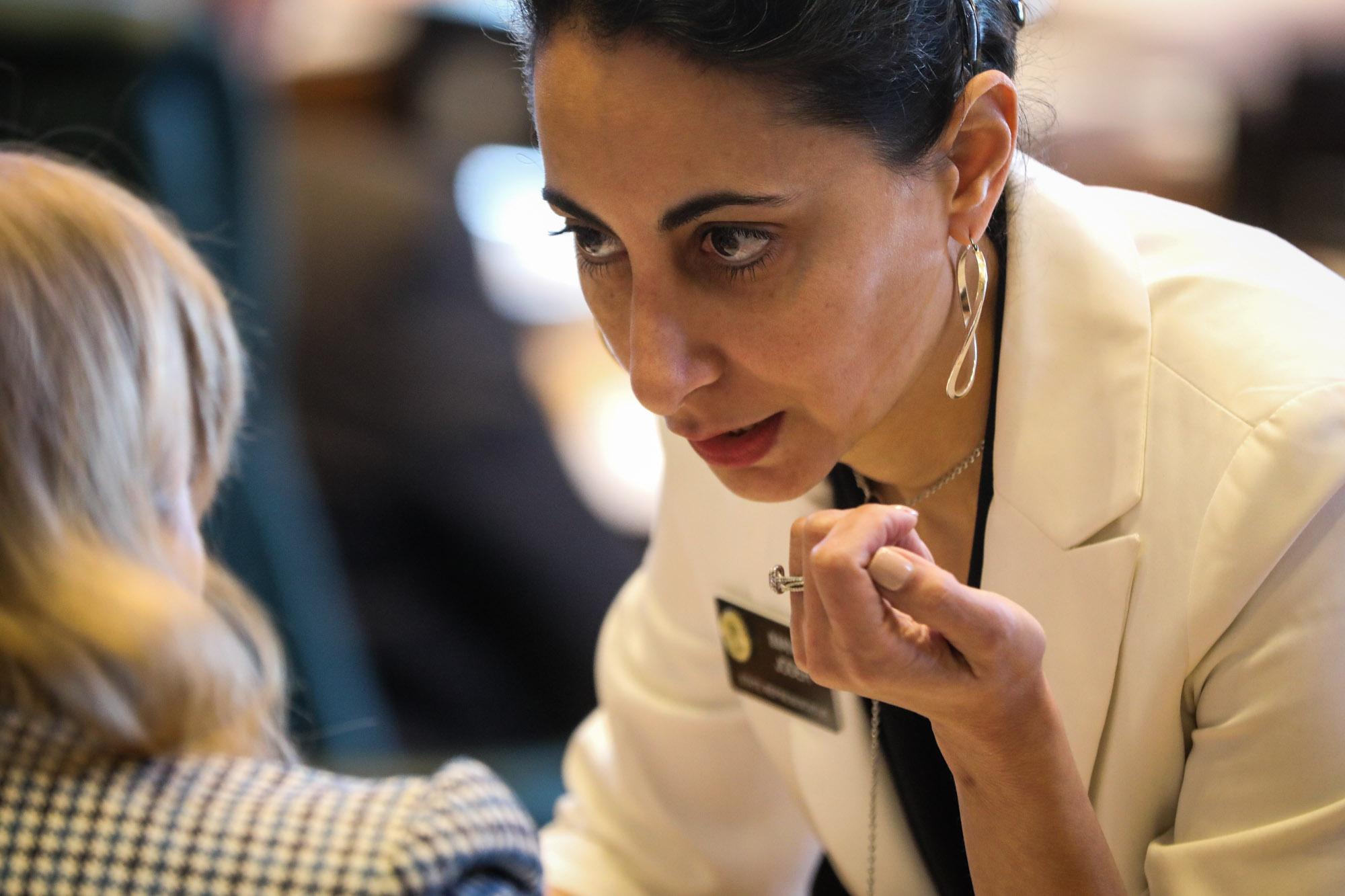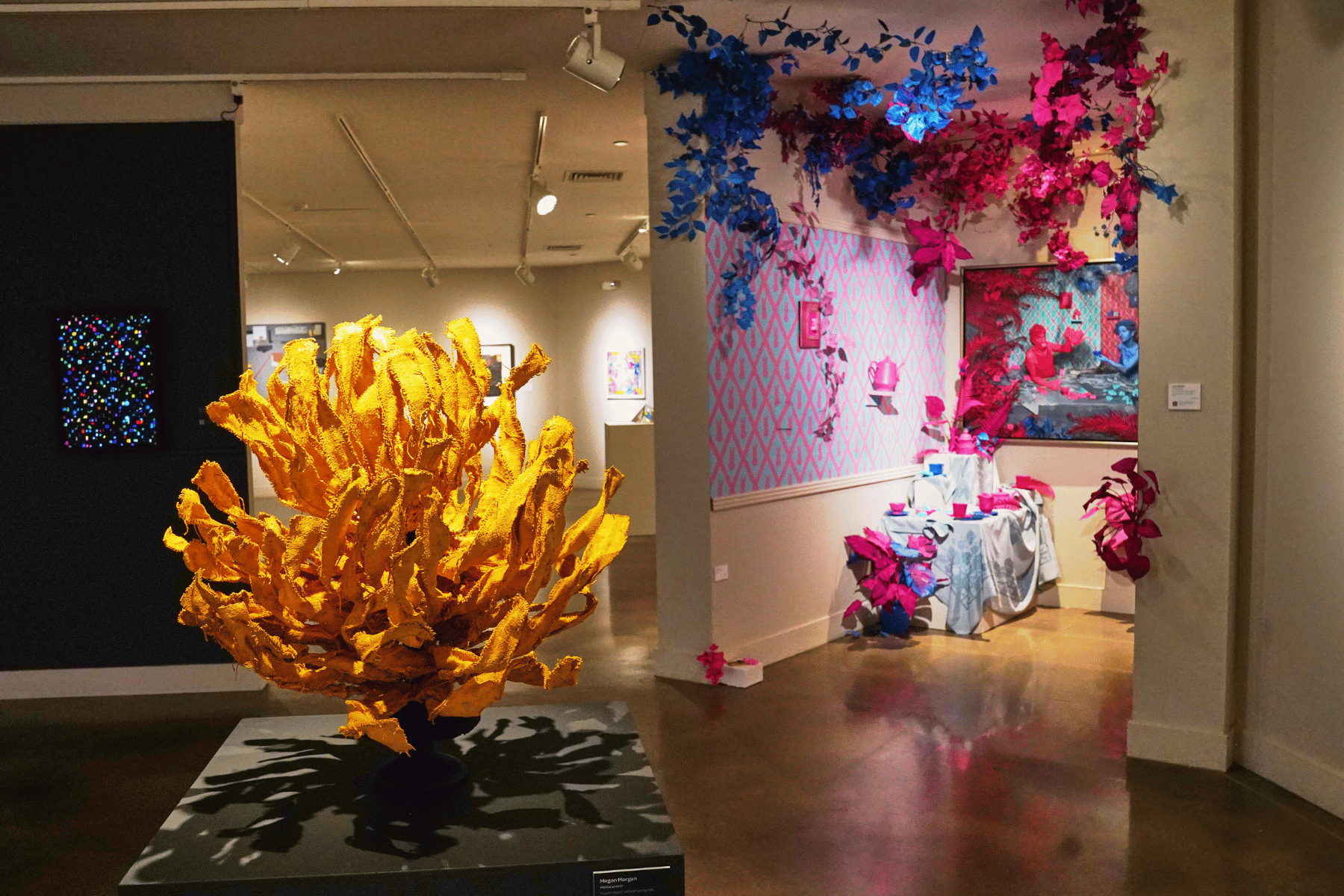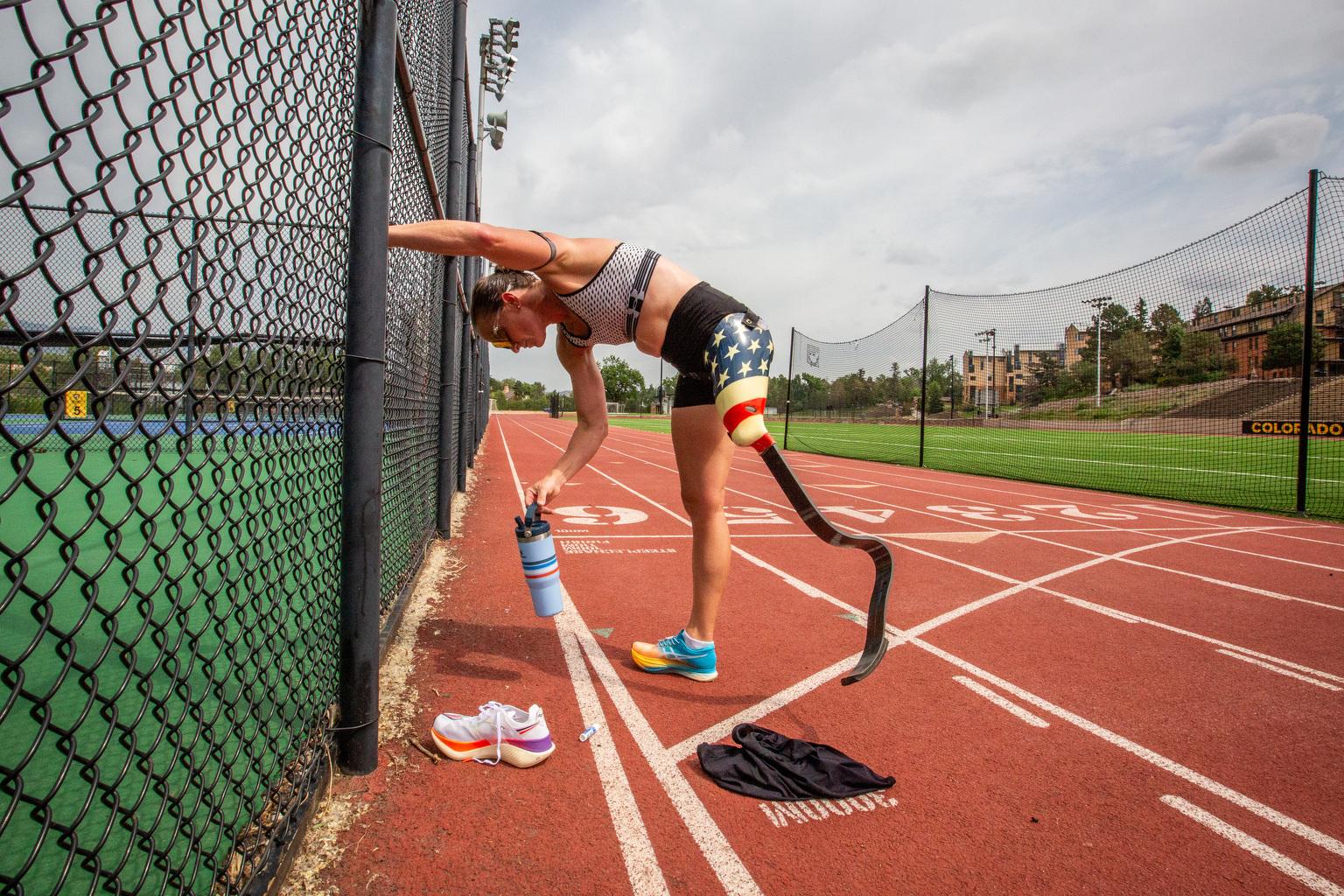
The United States Olympic and Paralympic Committee said that 138 athletes have qualified for the 2024 Paralympic Games in Paris. The full roster will be announced Aug. 19.
Since competing in the first Paralympics in 1960, the United States has won 2,621 medals — the most of any country. Visually impaired American swimmer Trischa Zorn-Hudson owns the record for the most Paralympic medals for an individual athlete with 55 medals between 1980-2004.
Colorado has long been a hotbed for Paralympic training and qualifying, just like it is for the Olympics. It’s part of the identity of Colorado Springs. The then-U.S. Olympic Committee moved its headquarters to the city from New York in 1978. The current United States Olympic and Paralympic Training Center is on the site of the former Ent Air Force Base.
Zorn-Hudson and Elizabeth “Beth” Scott, another visually impaired swimmer, were the first Paralympians to train at the United States Olympic and Paralympic Training Center (USOPT) in Colorado Springs in the 1980s and early 1990s when “Paralympic” was not yet included in the training center or committee’s name.
The U.S Paralympic Division formed in 2001. The Paralympic Military Program was launched in 2004 to offer sports opportunities to wounded, ill, and injured American Service members. It wasn’t until 2019 that “Paralympic” was added to the USOPC’s official name.
According to the USOPC’s map of qualified athletes for Paris, seven Paralympians permanently reside in Colorado. Many more have moved to the state, including those who come to Colorado Springs to become resident athletes at the United States Olympic and Paralympic Training Center.
Outside the training and administrative infrastructure, Colorado is home to Paralympic legends and foundational stories, through the U.S. Olympic & Paralympic Museum in downtown Colorado Springs and the former competitors who call the state home. Ahead of the 2024 Games in Paris, CPR News interviewed people who represent the past, present and future of the Paralympics.
John Register — Para Swimming and Para Track and Field, retired from competition
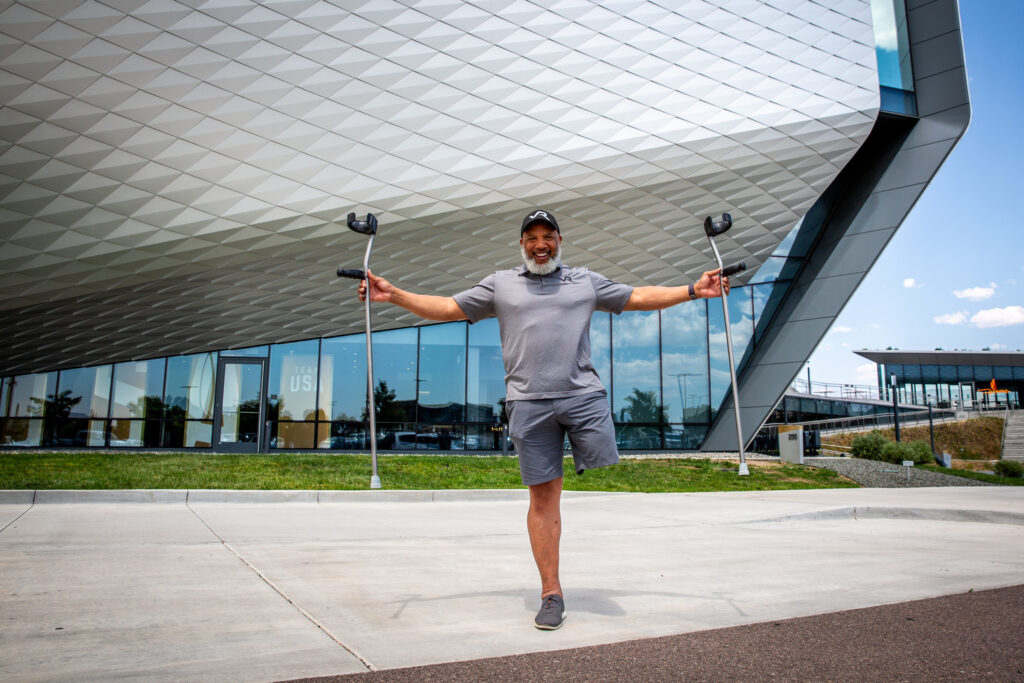
John Register, who lives in Colorado Springs, is like a father for many athletes on the current Paralympic team: He showed them a path to compete in adaptive sports and earn a spot in the Games.
Register has been athletic all his life. He was an All-American at the University of Arkansas, then participated in the Army’s sports training program during his service in Desert Storm. He was on track to make the trials for the 1996 Olympics in hurdles when he had an accident in practice that caused damage to an artery behind his knee. He had his leg amputated above the knee.
Register ultimately still made it to Atlanta in 1996, representing the U.S. in swimming at the Paralympics.
“I've casted a new vision for myself. I've casted a new way to think about things,” Register said about the process he went through after the injury, to set himself on course for the Paralympics.
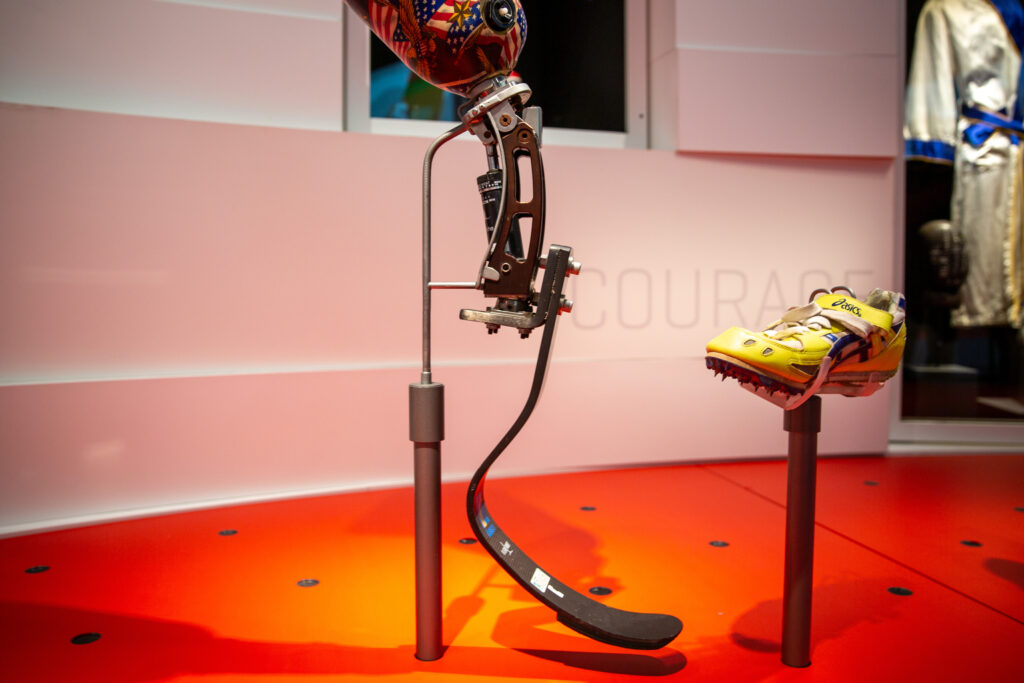
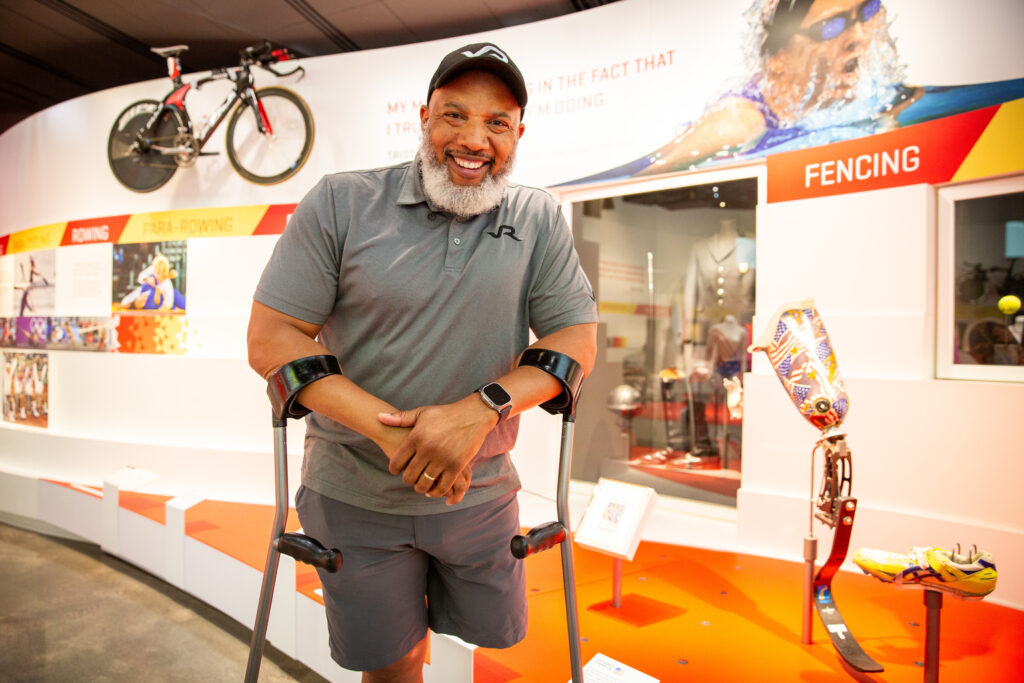
Register won a silver medal in the long jump in 2000 and set an American record. Later, he spoke to returning soldiers at Walter Reed Army Medical Center during the Iraq and Afghanistan Wars, encouraging them to take up sports in their recoveries, and he founded the United States Olympic Committe’s Paralympic Military Sports Program.
Register is a motivational speaker and CEO of the Amputee Coalition.
YanXiao Gong — Para Pistol, qualified for Paris
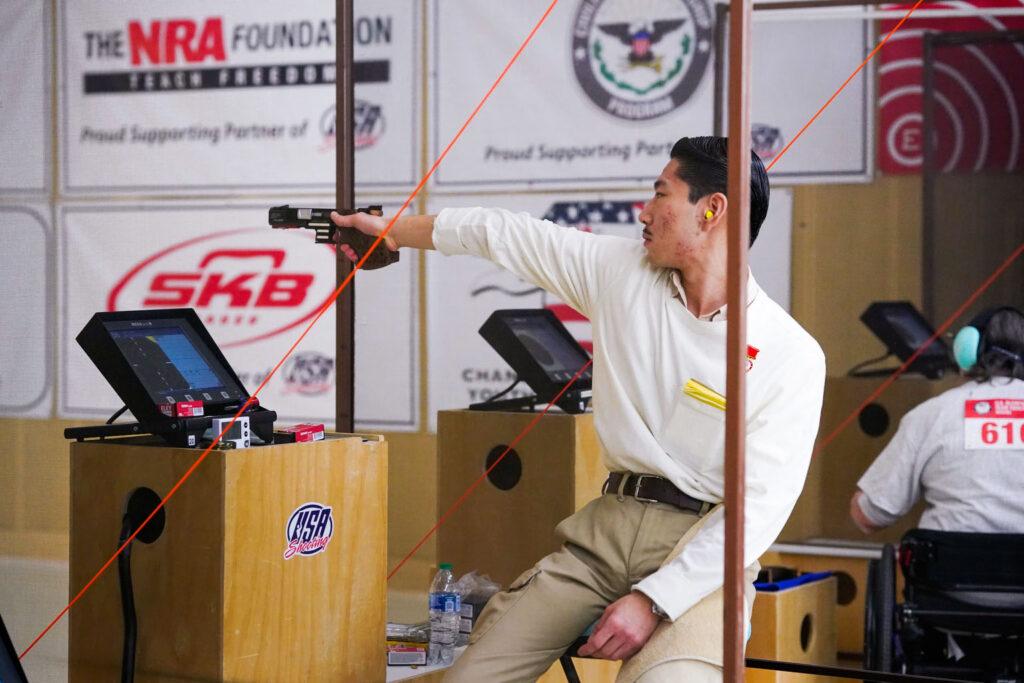
YanXiao Gong was born in China and came to the United States at a young age.
Shooting was a hobby for him as a kid, even though guns were illegal in China. He would get his grandparents to buy him BB guns, and he was fascinated by antique firearms and shooting in part because of old movies.
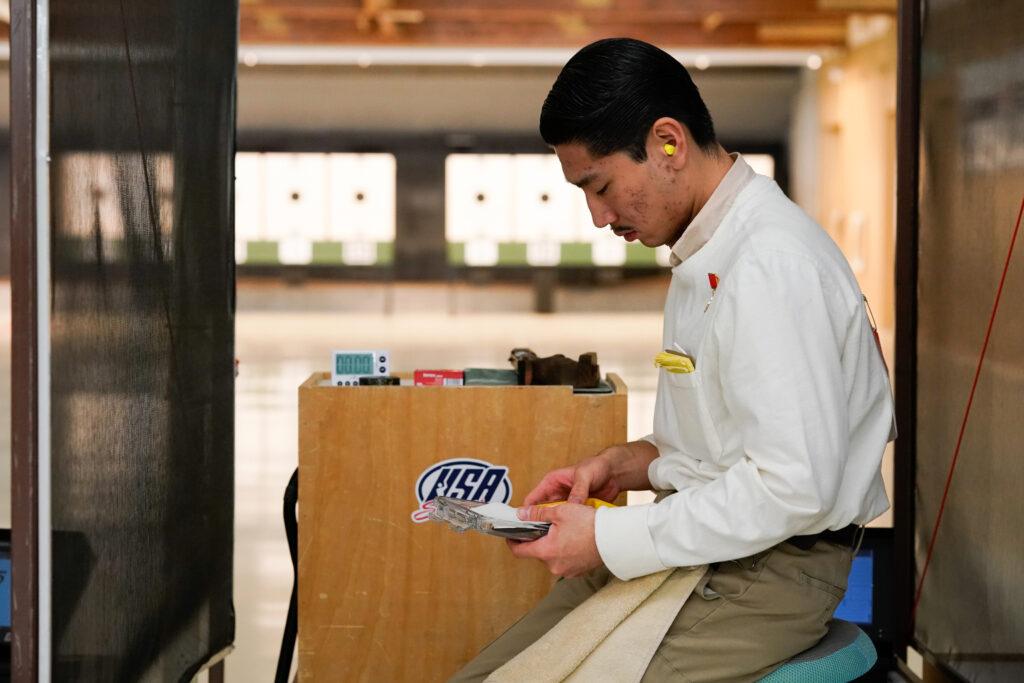
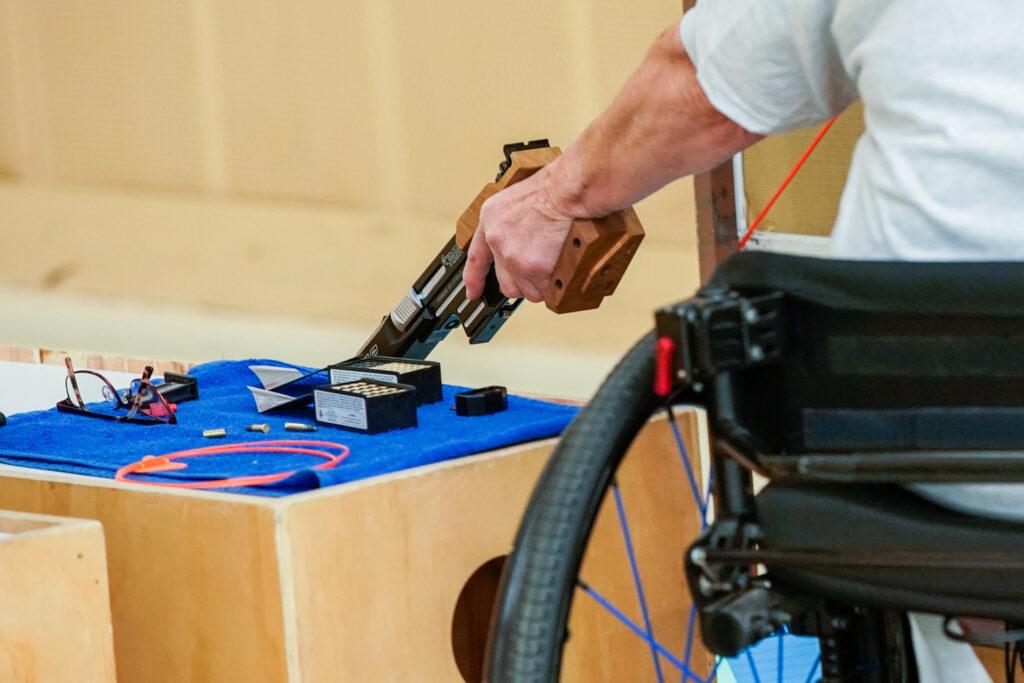
His family moved to California, and as a teenager in Malibu, Xiao decided to try surfing. But he severely injured his back on his first attempt. In recovery, shooting was one of the few things he enjoyed doing. Then he took up the sport competitively.
“It is the only sport that allows me the level of serenity and peace,” Xiao said. “Also I think shooting is the most precise sport, objectively. It requires the most precise control of your mind and body.”
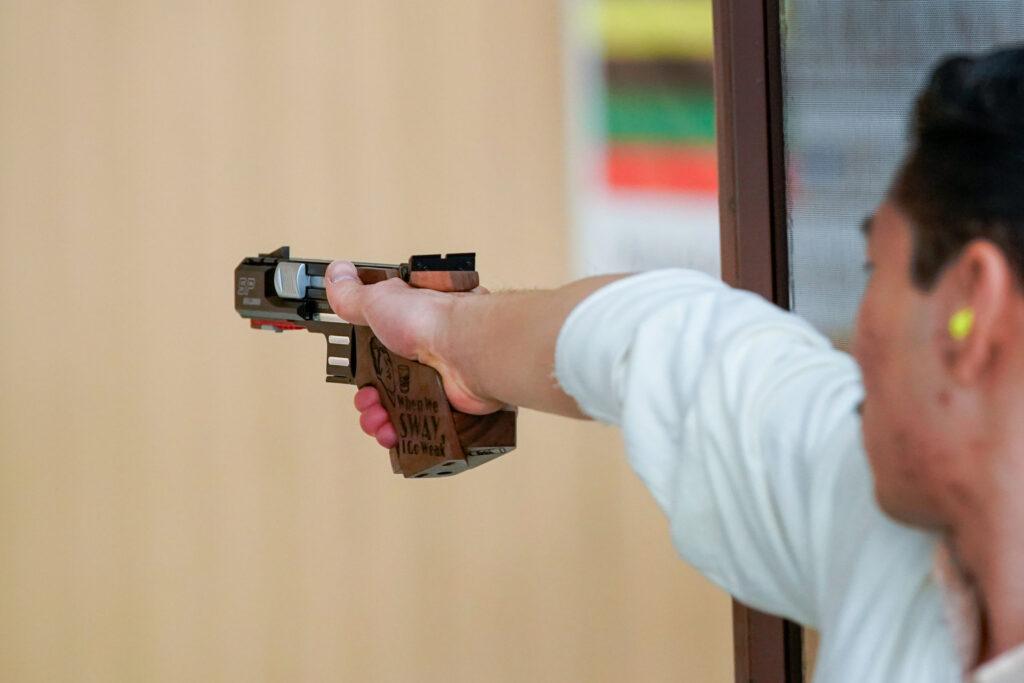
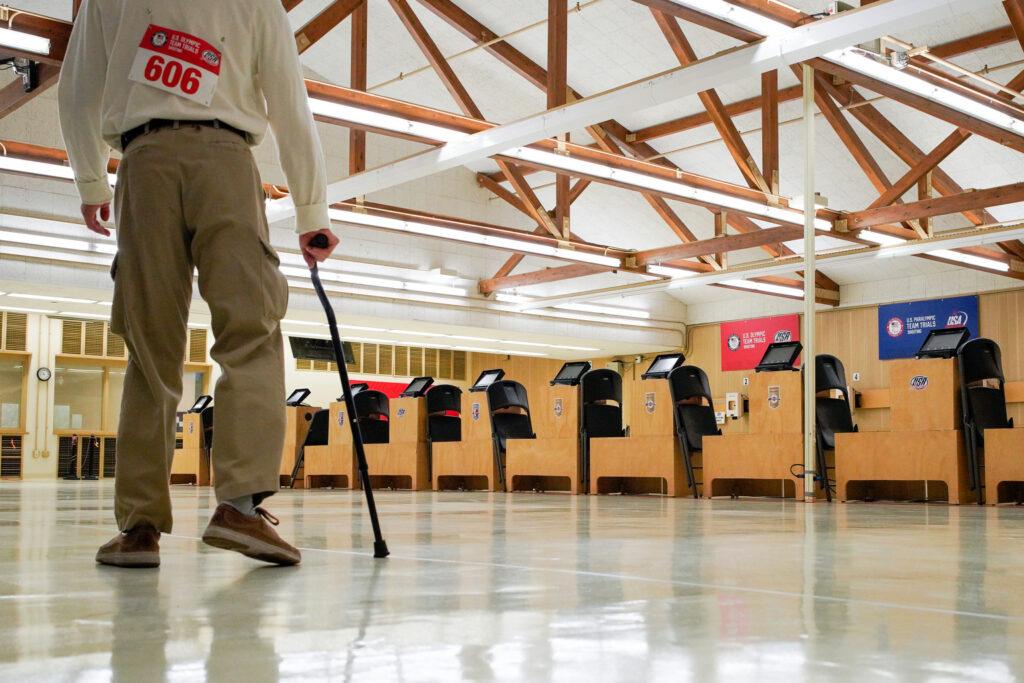
Xiao now lives and trains at the Olympic and Paralympic Training Center in Colorado Springs. He qualified for the 2020 Summer Paralympics in Tokyo, and didn’t medal.
The experience in Tokyo propelled him to success, though: He earned gold and bronze medals at the World Shooting Para Shooting Championships and the Parapan American Games in 2023. Xiao is heading to his second Paralympics seeking to add to his personal medal count.
Madison Champion — Para Rifle, alternate on the US team for Paris
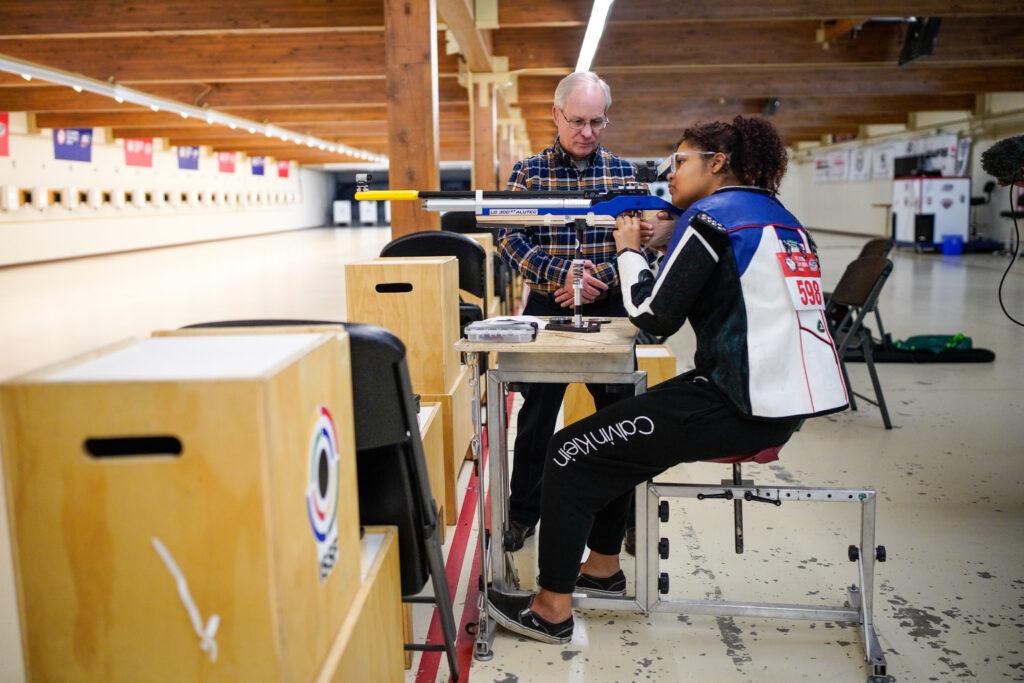
Madison Champion also lives and trains at the Training Center. She grew up in Texas, where she got into competitive shooting through Junior ROTC in high school. She says she tried out to avoid taking gym class, and she has ended up loving it.
“I’ve learned so much about myself just from doing this sport. I’ve learned things that I might not have ever learned in my life about myself,” Champion said. “Because I’ve never been pushed to think about a way to get through it before.”
Champion broke five national records in 2019, won multiple medals at the USA Shooting National Championships, and earned Team USA a spot in the Paris Paralympics. She was a member of the 2023 USA Parapan Team in Santiago, Chile, where she placed 5th and 6th, shooting from both standing and prone positions.
Despite those successes, she does not expect to compete in Paris: she qualified as an alternate, because of technicalities in the rules for qualification.
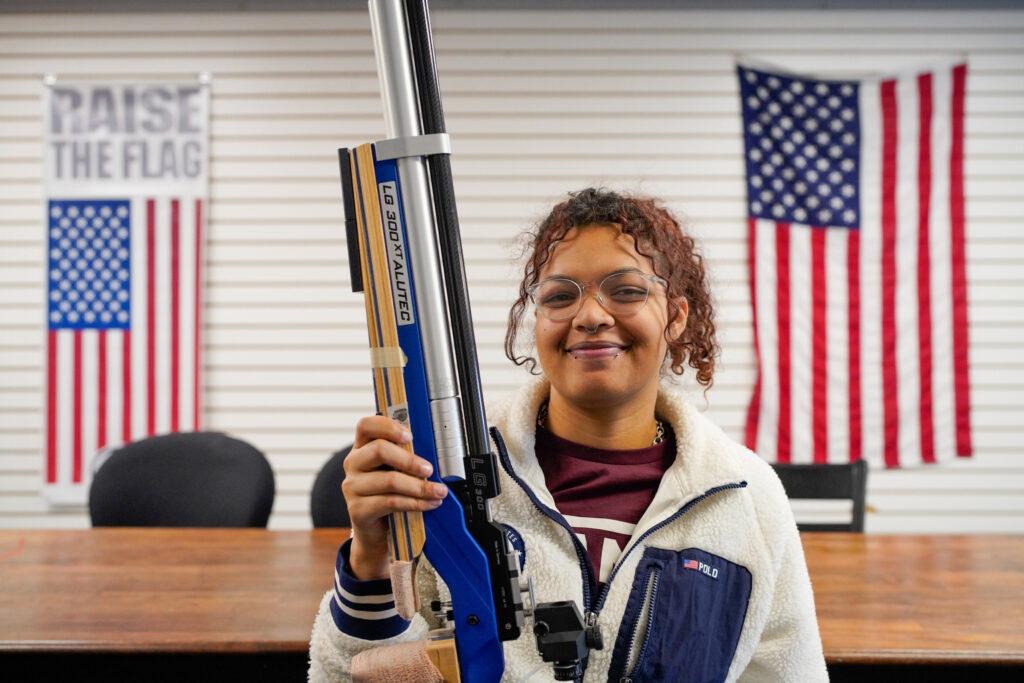
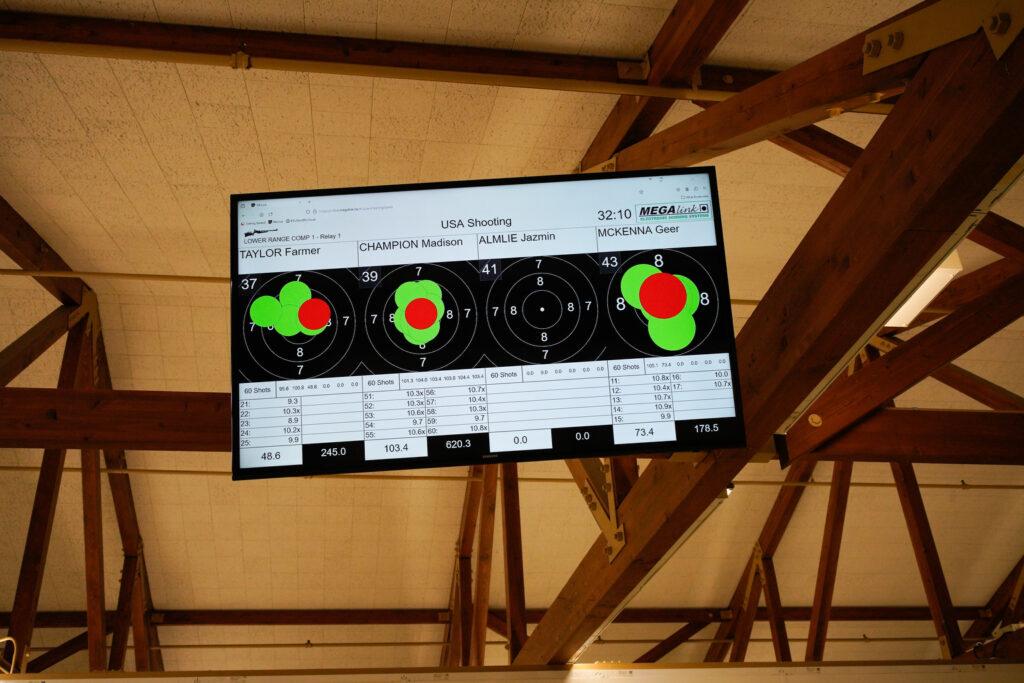
“It is just a really hard pill to swallow when you put so much time and effort towards something and you don't get to do it. I've missed funerals, I've missed births of family members, I've missed birthdays — the whole nine yards,” Champion said in a video on social media in July.
But Champion said she is rooting for her teammates in Paris, and already looking ahead to 2028 in Los Angeles.
“I feel like it is making me a stronger person and a better athlete so that I can go and compete later on,” she said.
Melissa Stockwell — Para Swimming and Paratriathlon, qualified for Paris
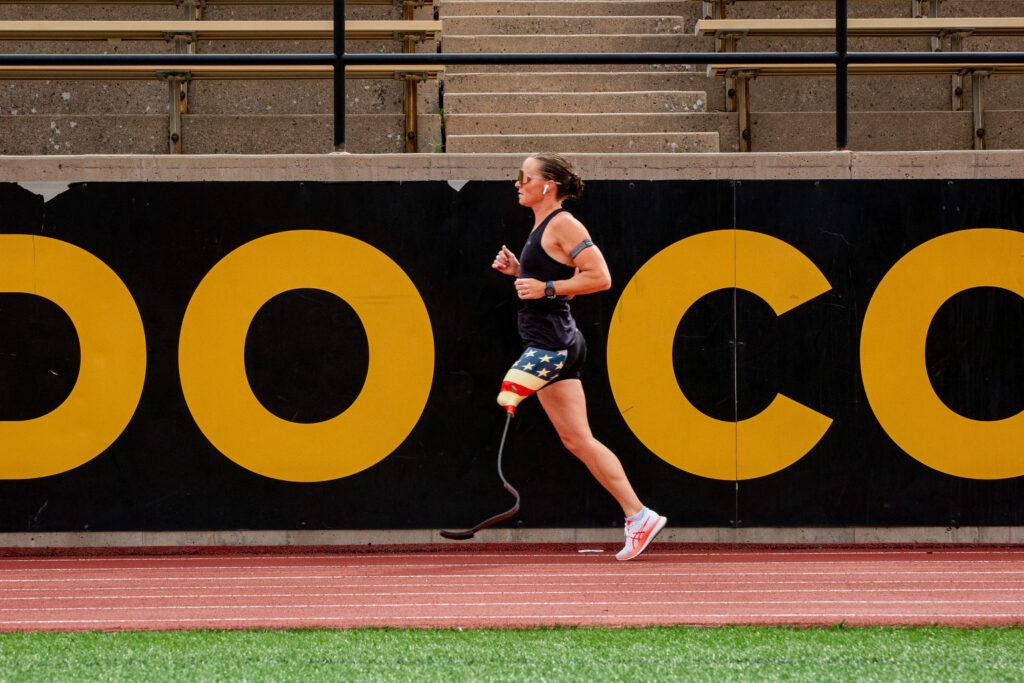
Melissa Stockwell went to the University of Colorado Boulder, where she participated in ROTC.
During her senior year, the 9/11 attacks happened and put the U.S. on the course for war. Stockwell went to Iraq in 2004, and about a month later, she was riding in a humvee when it was hit by a roadside bomb.
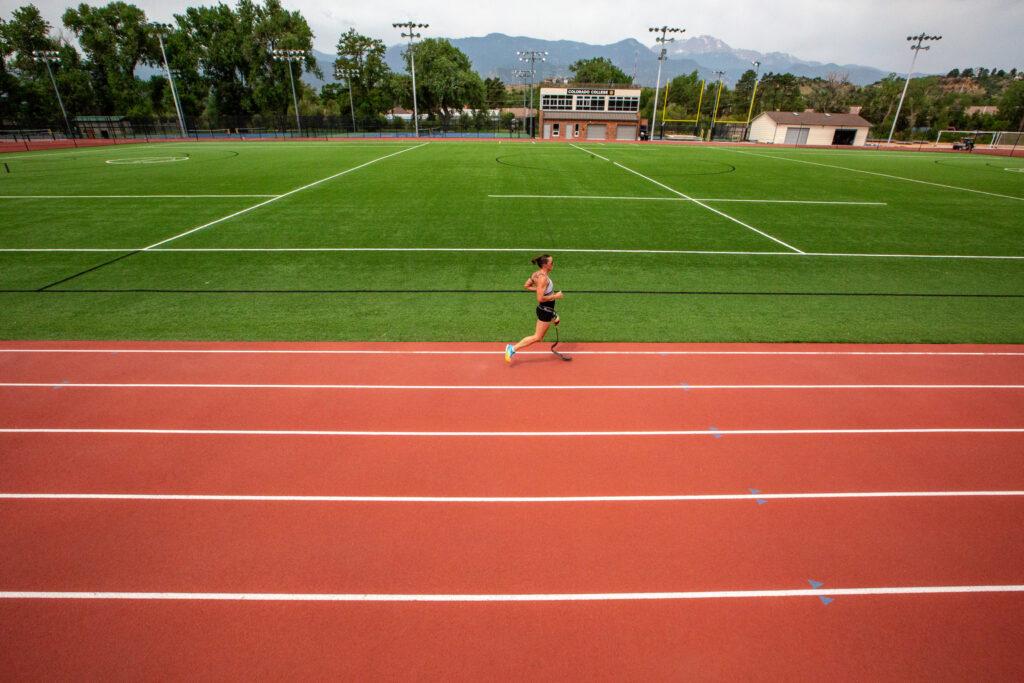
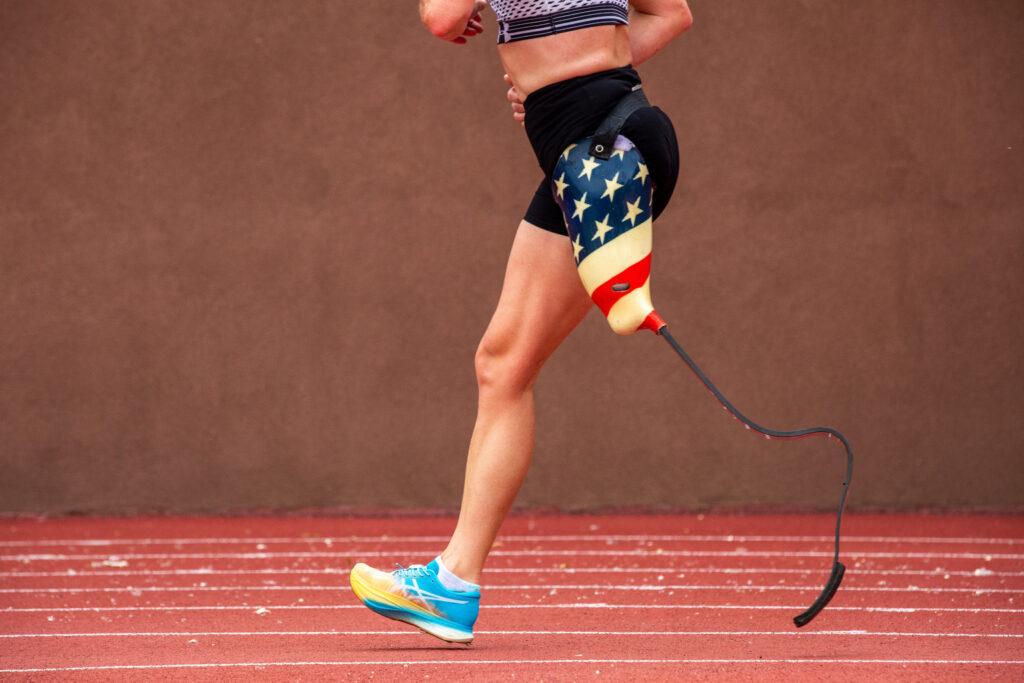
Her leg was severed, and Stockwell became the first female American soldier to lose a limb in combat in Iraq. She went to Walter Reed Army Medical Center, where John Register gave her the idea to go for the Paralympics. Like Register, she started by swimming.
She qualified for the 2008 Paralympics in Beijing.
Later she shifted her focus to paratriathlon where she won the bronze medal at the 2016 Paralympics in Rio de Janeiro — part of a Team USA sweep that day. She also competed in the event in 2020.
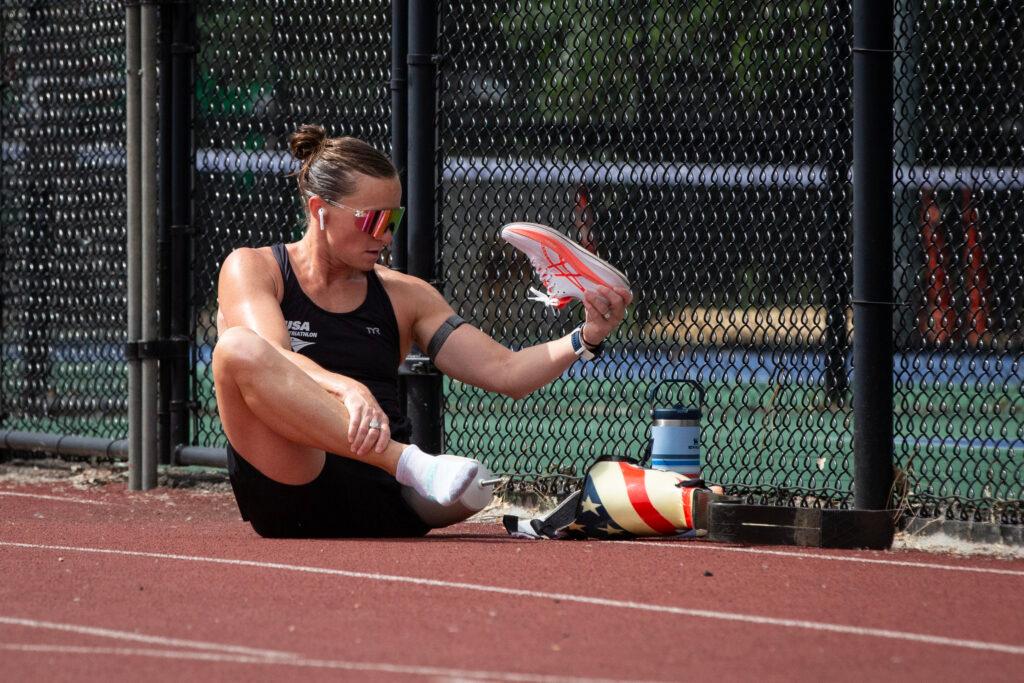
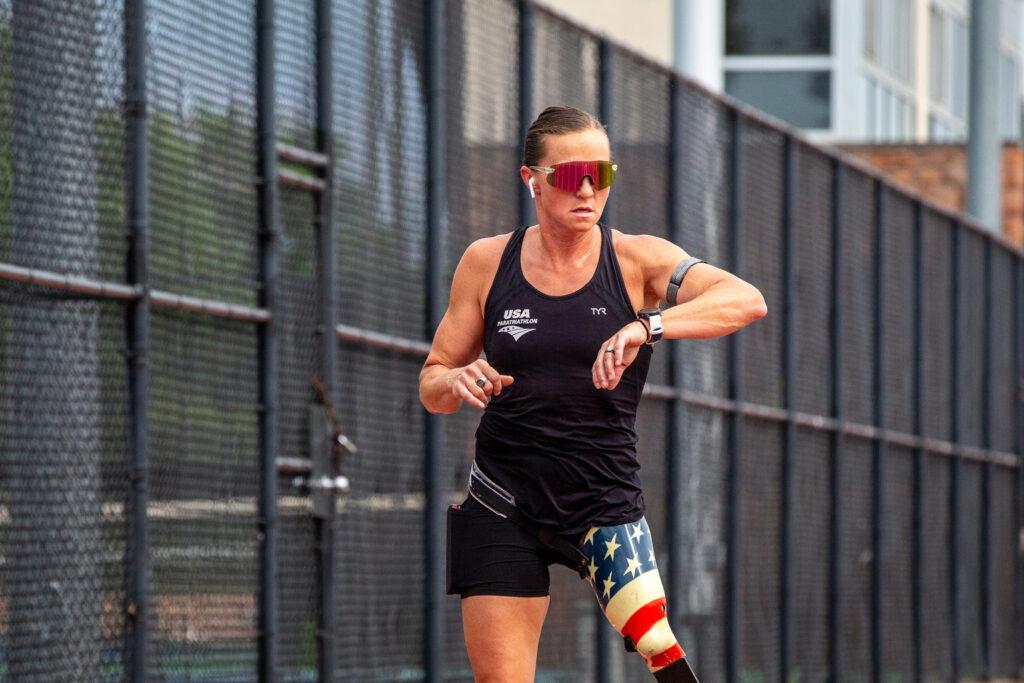
She’s making her fourth appearance in the Paralympics this summer.
Stockwell lives with her husband, two kids and their dog in Colorado Springs. She and her husband own and operate a prosthesis company. Stockwell also does motivational speaking, where she emphasizes the power of choices in people’s everyday lives.
Robin Tueting — Goalball
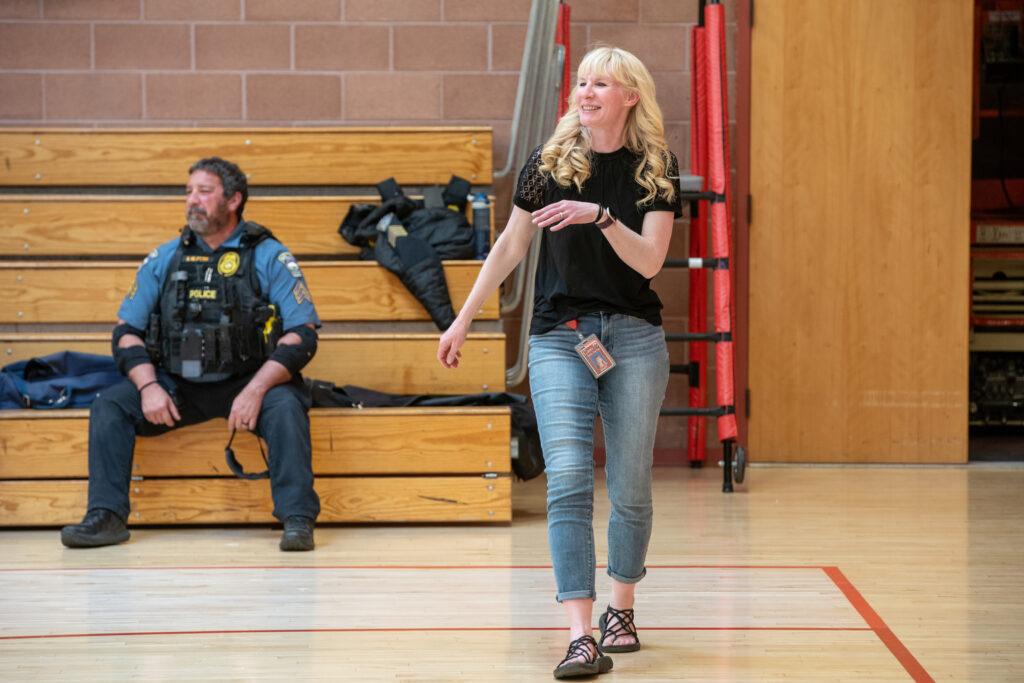
Robin Tueting is a two-time Paralympic medal winner in goalball.
Originally from Michigan, Tueting represented Team USA for three straight Paralympics from 2008-2012. She brought home a silver medal in 2004 and a gold medal in 2008.
After earning a master’s degree in Orientation and Mobility from Western Michigan, she became a certified Orientation Mobility Specialist at the Colorado School for Deaf and Blind in Colorado Springs.

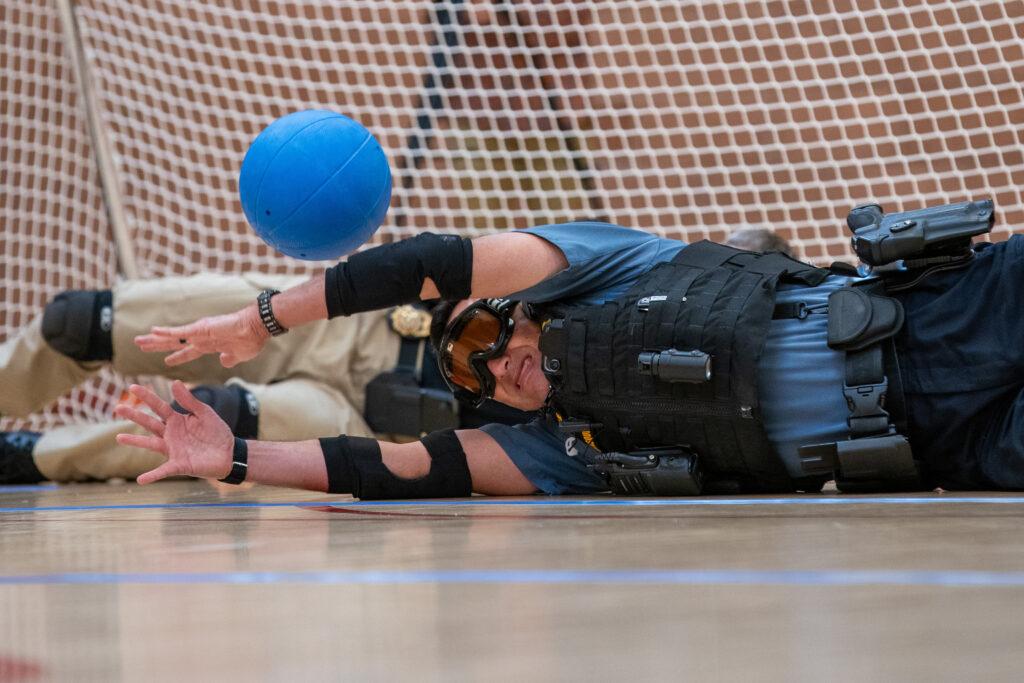
The school offers a chance for young people with visual impairments to discover goalball, which is one of the two Paralympic sports without an Olympic equivalent.
In goalball, athletes lie down on the floor to protect long nets at the ends of a gym. A bell inside the ball, which is about the size of a basketball, signals to the athletes where the ball is at any given moment.
Competitors wear eyeshades, so no matter the level of visual impairment that people have, they play on equal grounds.
These days when Tueting is not helping students, she stays competitive through roller derby.
CPR's Rachel Estabrook produced the audio for this series.




